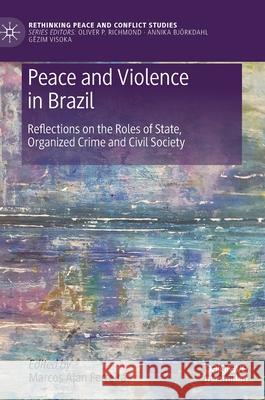Peace and Violence in Brazil: Reflections on the Roles of State, Organized Crime and Civil Society » książka
topmenu
Peace and Violence in Brazil: Reflections on the Roles of State, Organized Crime and Civil Society
ISBN-13: 9783030792084 / Angielski / Twarda / 2021 / 235 str.
Kategorie BISAC:
Wydawca:
Palgrave MacMillan
Seria wydawnicza:
Język:
Angielski
ISBN-13:
9783030792084
Rok wydania:
2021
Wydanie:
2021
Numer serii:
000312198
Ilość stron:
235
Waga:
0.46 kg
Wymiary:
21.01 x 14.81 x 1.75
Oprawa:
Twarda
Wolumenów:
01
Dodatkowe informacje:
Wydanie ilustrowane











